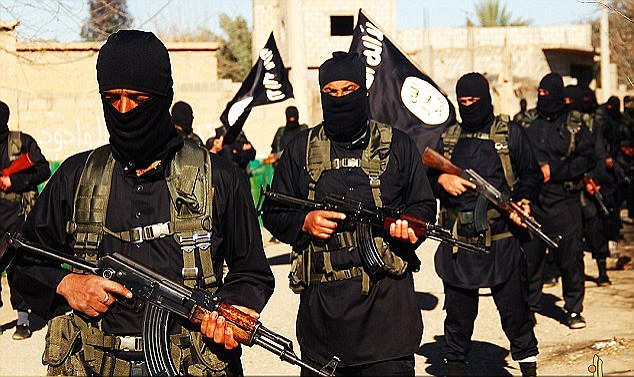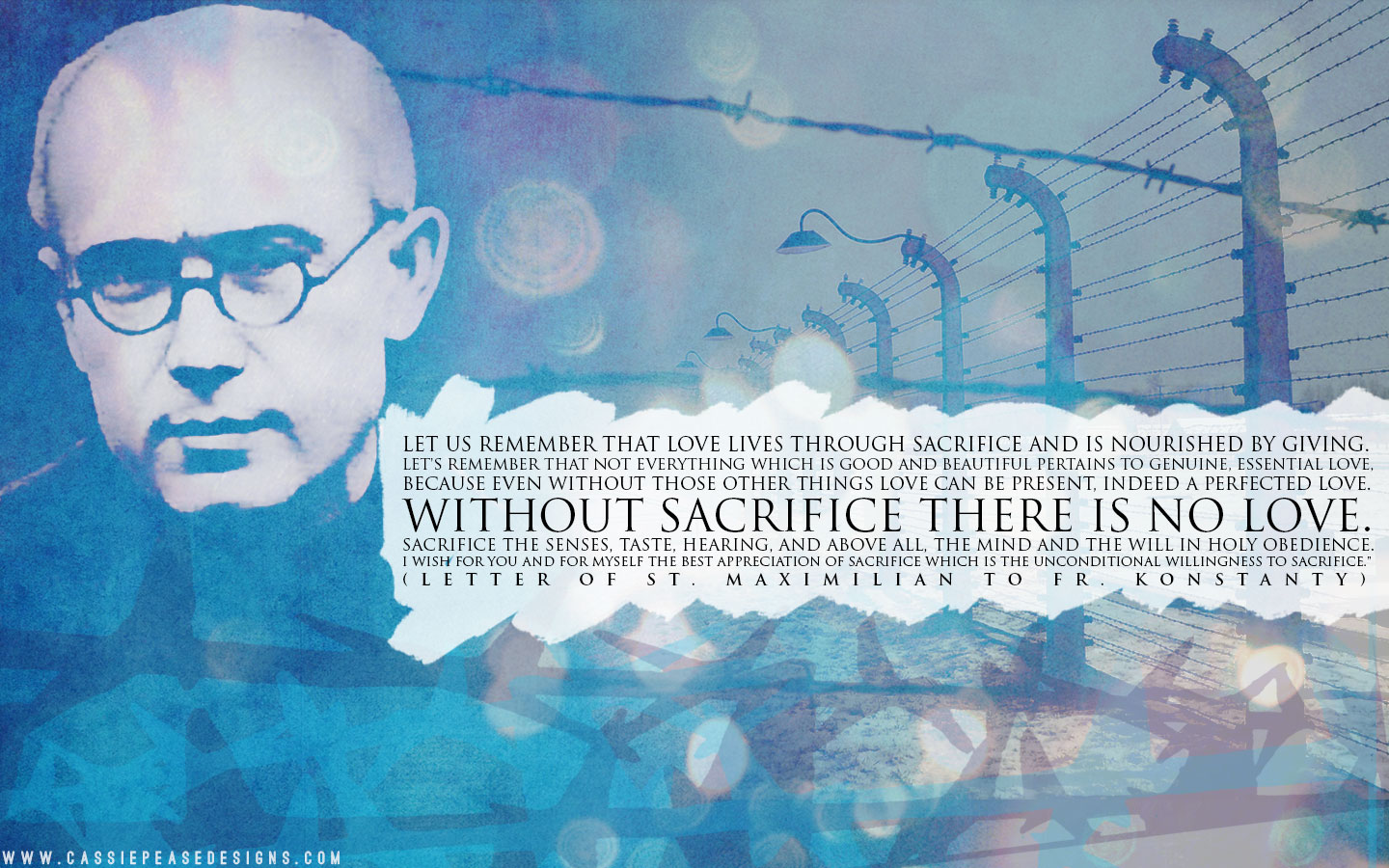5.40 pm: Thursday May 28th 2015
Lord Alton of Liverpool (CB):
My Lords, in welcoming the talented team of Ministers who have responsibility for international affairs and security issues, it is clear from the debate today on the gracious Speech that there are no shortage of challenges facing them.
In my remarks, I should like to follow those who have spoken about the particular challenge that is posed by ISIS.
Last week, the barbaric beheadings in Palmyra, accompanied by the blitzkrieg of antiquities and ancient colonnades, graphically illustrated the nature of the depraved ideology that animates ISIS or Daesh, while, in a double victory, its capture of Ramadi underlines the serious threat that it poses and, as other noble Lords have said, the urgency with which we must re-evaluate our military and diplomatic approach.
ISIS may call itself a state but, despite its name, it is not a state, merely a cruel ideology. As a report published today reminds us, ISIS continues to attract adherents from the United Kingdom, including young women whose allegiance and imagination we have failed to capture.
The orgy of violence for which ISIS has been responsible, and which has already destroyed the ancient Assyrian city of Nimrud, along with Hatra and Khorsabad, accompanied by the carnage and slaughter of innocent people, cannot be left uncontested, neither at a military level nor in the battle for ideas.
We are pitted against an ideology that thinks nothing of defiling Shia mosques, destroying Christian churches, blowing up Afghanistan’s Bamiyan Buddhas and eradicating the Sufi monuments in Mali.
It was Edmund Burke who remarked that, “Our past is the capital of life”.
What we are witnessing is an attempt to eradicate the past and eliminate humanity’s collective memory, while cynically smuggling and selling on the antiquities that are not destroyed to fund this campaign of mass murder.
Last month, jihadist ideology led to the deaths of 147 students and staff in Kenya’s Garissa University College, with Christian students specifically singled out; to the burning alive in a kiln of a Christian couple in Pakistan by a mob of 1,300 people while their young children were forced to watch; to the abduction of young girls in Nigeria by Boko Haram; to the beheading in Libya of 21 Egyptian Copts who were working there; and to the beheading of 30 Ethiopian Christians trying to flee these depravities.
Since 2011, more than 4 million Syrians have been killed or forced to flee their homes, with around 30,000 people added every single day to the 140 million people worldwide who are affected by conflict or natural disasters such as that which has occurred in Nepal.
Is it any wonder that the desperate, from Rohingya Muslims to Middle Eastern Christians, take to the high seas to try to escape?
Since 2011, of the 4 million Syrian refugees, the United Kingdom has offered shelter to just 187, a point that my noble friend Lord Williams referred to in his excellent speech. Let us compare that to the 1.2 million refugees that Lebanon has accepted. Of course, the long-term answer is for people to be able to return to live in peace in their own homes, but we are further away from that than ever.
Echoing what the noble Baroness, Lady Helic, said earlier in her magnificent maiden speech, I say that today’s realities in the region were spelled out by the United Nations Special Representative on Sexual Violence in Conflict—an issue in which I know the noble Baroness, Lady Anelay, has taken a particular and significant interest. The special representative reported last week that young Iraqi and Syrian women, particularly from the Yazidi community, are subjected to the most traumatic, degrading and inhuman treatment before being sold in slave markets to the highest bidders.
Human Rights Watch reported on the girl, referred to by the noble Baroness, Lady Hodgson, who had been traded more than 20 times, but that same report describes how traumatised girls had been banned from using headscarves after some used them to hang themselves.
At the start of this Parliament, I hope that the Government will take more effective action to have those responsible for such atrocities brought to justice before the International Criminal Court, a move that we should initiate in the Security Council.
Championing and upholding the rule of law is the antidote to this ideology, not assassination squads or endless bombardments.
We also need to create more safe havens, a point which my noble friend Lord Hylton and I and other noble Lords from all sides of your Lordships’ House addressed recently in a letter to one of the national newspapers. We need to do that in the affected regions to stem the flow of migrants. We need also to promote Article 18 obligations.
When a country like Saudi Arabia passes legislation defining atheists as terrorists, beheads its citizens, and refuses to protect the right of minorities to follow their beliefs, or to have no belief, is it any wonder that such actions are mimicked by Daesh?
The noble Lord, Lord Wallace of Saltaire, referred earlier to Saudi pressure on the United Kingdom to draw up a report on the Muslim Brotherhood. Perhaps when the Minister comes to reply she will tell us when that is likely to be published.
At the heart of all these issues is the challenge of learning to live together and of respecting difference.
Our failure to make the battle of ideas a priority was underlined recently in a reply to the Member of Parliament for Westmorland and Lonsdale, Tim Farron, when it was stated by the Foreign Office that just,
“one full time Desk Officer”
is,
“wholly dedicated to Freedom of Religion or Belief (FoRB)”,
and that,
“the Head and the Deputy Head of HRDD spend approximately 5% and 20% respectively of their time on FoRB issues”.
Understanding authentic religion and the forces that threaten it is more of a foreign affairs imperative than ever before, and the resources we put into promoting Article 18 should reflect that reality.
I hope that freedom of religion and belief will be a specific priority in the FCO business plan and that the Government will make common cause with the Labour Party, which gave a manifesto commitment to appoint a special envoy to promote Article 18.
I also hope that, in the battle of ideas, we will think again about our foolish cuts to the British Council budget, from £190 million to £154 million. We should not emasculate the BBC World Service. We should promote the Commonwealth, as the noble Lord, Lord Howell of Guildford, said in his remarks, particularly as an agency for education in parts of the world that will change only with the opportunities of education.
In conclusion, it is sometimes suggested that Britain should retreat from the world and relinquish our international responsibilities.
How right was that great Pole Maximilian Kolbe, who was murdered by the Nazis at Auschwitz, and who said:
“The most deadly poison of our times is indifference”.
Such indifference would be bad for Britain and even worse for the rest of the world.
5.50 pm
————————————————————————————————————————————————————
2014:
Parliament Debates The Government’s Call for Military Action Against ISIS Links to today’s debates: http://www.parliament.uk/business/publications/hansard/lords/todays-lords-debates/read/unknown/19/ http://www.parliament.uk/business/publications/hansard/commons/todays-commons-debates/read/unknown/13/ 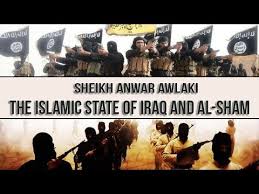 At the beginning of this month it was reported that since this calamitous conflict began in Syria, in March 2011,the number of dead had topped 150,000, with 6.2 million internally displaced people – a number without parallel in any other country – and nearly 11 million people in need. More than two million Syrians have now fled, marking a nearly 10-fold increase from a year ago. Earlier this month the UNHCR said: “Syria is haemorrhaging women, children and men who cross borders often with little more than the clothes on their backs” In the past 12 months, around 1.8 million people have flooded out of Syria, and an average of 5,000 continue to cross into neighbouring countries each day. In August, UNHCR said that the number of Syrian children living as refugees has exceeded one million. This week alone 130,000 displaced Syrian Kurds have flooded into Turkey. In addition, thanks to ISIS, there are 1.8m people displaced in Iraq.
At the beginning of this month it was reported that since this calamitous conflict began in Syria, in March 2011,the number of dead had topped 150,000, with 6.2 million internally displaced people – a number without parallel in any other country – and nearly 11 million people in need. More than two million Syrians have now fled, marking a nearly 10-fold increase from a year ago. Earlier this month the UNHCR said: “Syria is haemorrhaging women, children and men who cross borders often with little more than the clothes on their backs” In the past 12 months, around 1.8 million people have flooded out of Syria, and an average of 5,000 continue to cross into neighbouring countries each day. In August, UNHCR said that the number of Syrian children living as refugees has exceeded one million. This week alone 130,000 displaced Syrian Kurds have flooded into Turkey. In addition, thanks to ISIS, there are 1.8m people displaced in Iraq. 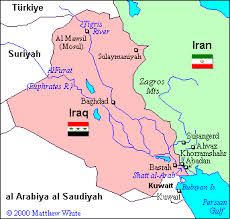 I first visited Syria in 1980 and arrived in Damascus on the day on which war broke out between Iran and Iraq—a war that claimed a million lives. In the decades which have followed disfiguring violence and war have shaped events in the region, leaving in its wake a bitter trail of orphaned children, widowed mothers, hoards of suffering displaced people, refugees and broken towns and cities.
I first visited Syria in 1980 and arrived in Damascus on the day on which war broke out between Iran and Iraq—a war that claimed a million lives. In the decades which have followed disfiguring violence and war have shaped events in the region, leaving in its wake a bitter trail of orphaned children, widowed mothers, hoards of suffering displaced people, refugees and broken towns and cities. 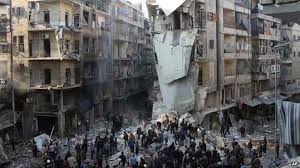 It is hard to imagine that a campaign of aerial bombardment in Syria will make that dire situation any better. Indeed, as we attack ISIS command centres, their insurgents will hide themselves in civilian settings and every time a Cruise missile hits the wrong target and kills non-combatants it will radicalise and recruit yet more fighters to their cause. However brave and better armed the Kurdish Peshmerga and Free Syrian Army may be – and we had better hope that this time the arms we provide do not fall in to the hands of ISIS – endless air strikes and drone warfare will not achieve our objectives. We must also be wary of the danger of assuming, especially in the case of countries like Iran, that the old proverb “the enemy of my enemy is my friend” is true. Military force alone will not kill the religious ideology that created and sustains ISIS, Boko Haram, the Al Nursa Front, al Qaeda, Al Shabaab, Hezbollah and the countless mutations which are committed to violence to achieve their ends. By definition, military action cannot kill ideas or beliefs so our central task must be to convince Muslim majority societies, that their own interests demand toleration of minorities and the equality and freedom of people of other faiths. It illustrates the size of this challenge that when an Afghan graduate student submitted a research paper arguing, from the Koran, that Islam supports the equality of men and women, his professors reported him to the police. After being charged with blasphemy he was convicted and given a death sentence. This and beheadings, crucifixions, rapes and enslavement, all underline the scale of the battle for hearts and minds in which we have to be engaged. Until these societies move toward pluralism, encourage religious freedom and respect diversity, they will not enjoy the peace, stability, internal security, and economic growth, for which all people crave. But, in the immediate situation in which we now find ourselves, we could do a lot worse that revisiting the initiative taken by Sir John Major in 1991 during the mass exodus in the first Gulf War. The UN-mandated safe-haven and the subsequent no-fly zone enabled Kurdish refugees to return to their homes and to establish a de-facto autonomous region, which continued until the fall of the Saddam regime in 2003, and which in recent weeks has once again become a vital place of refuge for Iraq’s minorities. If, once again, we established a no-fly zone along the Turkish-Syrian border or, ultimately right across Syria, it would at least provide air cover to the FSA, the Iraqi army, and the Peshmerga as they seek to reclaim territory – the size of the UK – which has been needlessly and foreseeably lost to the Islamic State who, with an estimated 10,000 fighters, have been allowed to strike with deadly impunity. Their caliphate has now been imitated by the equally deadly Boko Haram in northern Nigeria. One other thing we must urgently do is to dry up the sources of ISIS revenue. On June 17th I asked the Government about the sources of funding which ISIS have received allowing them “to build up an amazing military capability” with the then Minister responding that she was “not sure about any direct funding”. On July 23rd, in an article in The Times I urged the West to press the Gulf States to end funding for ISIS. It is said that they garner £600,000 a day from selling oil on the black market. The sale of antiquities – some 8000 years old – and ransom money is estimated to give them a daily income of £1.2 million. We must ruthlessly follow the trail of money and expose those who are financing the orgy of killing. Last week, Sabah Mikhail Brakho, the chairman of Iraq’s Beth Nahrain National Union, called on the Gulf States to stop funding ISIS. He said “Financing for ISIS comes from the Arab Gulf countries, whether through governments or individuals. This is sometimes done openly, such as by Qatar, and sometimes secretly, such as by Saudi Arabia, as well as by a number of Kuwaiti individuals,” Earlier this month Western press and intelligence reports indicated that states such as Saudi Arabia, Qatar, and Kuwait, are the main supporters of Jihadist groups in the region. The Daily Telegraph reported that Qatar’s Aspire Sports Academy hosted a number of religious lectures during Ramadan that were attended by Islamist preachers known for their extremism or links with terrorism. They included Sheikh Mohammed Arifi who encouraged Muslims to swell the ranks of militant groups in Syria: “We will not overcome humiliation except by jihad,” he said. Although he was subsequently prevented from entering Britain, on July 14 he gave a lecture at the Aspire Festival in Doha, where he was honoured by two members of the Qatari royal family. The festival was also attended by Nabil Wadhi, sponsor of the Major Kuwaiti Campaign to support 12,000 Islamic fighters in Syria. This campaign claims that it could collect millions of dollars to buy anti-aircraft missiles and was also planning to buy thermal missiles. The Islamic State has been years in the making and it is a crisis which we should have averted. In a House of Lords debate back on February 27th I referred to the “Afghanisation” of Syria, and pressed the Government for more clarity about the indiscriminating way in which support had been given to so-called opposition groups, largely at war with one another; and the need to hold the Assad regime to account for its use of chemical weapons; the Sarin gas which has been used against civilians in the suburbs of Damascus; the barrel bombs which have rained down on Aleppo. In singling out ISIS during that debate I asked for the Government’s assessment of the areas which they controlled, their use of suicide bombers, the radicalisation of recruits, citing the example of an engineering student from the University of Liverpool who had been killed in military action, and argued that “vast tracts falling under the control of dangerous jihadist groups, would hardly represent progress.” Earlier that week I had sent the Government a report from the Institute for Policy Analysis of Conflict which described how Jihadi humanitarian assistance teams appeared to be facilitating the entry of fighters, via Turkey. I hope Parliament will be told the numbers of Britons involved with ISIS and the flow of money into their coffers. I would also like to hear something about the plight of the region’s minorities – In February, in arguing that the situation had been exacerbated by the flow of arms into Syria, I warned of the dangers posed to the region’s minorities whom ISIS required to pay tribute, to convert or to leave and asked “what we are doing to provide direct help to these beleaguered minorities”. As long ago as 2008 and 2010 I raised concerns in the House of Lords House about the Yazidis and the “assassinations and kidnappings” which they faced. In the debate in February I quoted the account of a Christian, Basman Kassouha, who described how ISIS had “stormed my house, giving me one hour to evacuate or else they will kill me … I’m heartbroken. I’ve lost everything”. I cited evidence of genocide from Bishop Elias Sleman who said that “Christians are increasingly targeted in horrible and unspeakable massacres” and asked that we carefully collate such accounts for a day of reckoning. I asked in February that we use our voice in the Security Council to refer these atrocities to the International Criminal Court and said that failure to do so would bring “great dishonour on this country.” I ask, again, what have we done to plead for the rule of international law; and, if the ICC cannot be used, for the creation of a Regional Court in which perpetrators of atrocities which the Prime Minister described on Wednesday as “literally medieval in character” are brought to justice. What are we doing to ensure that the Government of Iraq will have a clear objective to enable communities who have lived in Iraq for almost 2000 years to do so again and to exercise their full rights and to discharge their duties as citizens? And what of the Yazids and Christians who have fled to the Kurdish region? What more can we do to help them? Time is not on our side. The harsh Iraqi winter is approaching. Social tensions between Kurds and Arabs, between local governments and migrants will grow and erupt if they are not headed off. The UK Government has generously given £23 million but the government needs to set out how they are working with international partners to ensure sustained funding for the humanitarian crisis, and efficiency of delivery. The Foreign Affairs Committee’s inquiry into The UK’s response to Extremism and Instability in North and West Africa delivered a salutary warning. Of the intervention in Libya in 2011 it said “considerable resources were expended ensuring that military goals were successfully achieved (for which the Government deserves credit), but there was a failure to anticipate, and therefore mitigate, the regional fallout from the intervention, which has been enormous and, in some cases, disastrous” Einstein defined insanity as doing the same thing over and over while expecting different results. In other words, following military action will the same thing happen again? Back in February 1 quoted a Dutch priest, Father Franz Van der Lugt, trapped in the old city of Homs who said, “Our city has become a lawless jungle”. He had insisted that “We love life, we want to live. And we do not want to sink in a sea of pain and suffering.” On April 7th it was reported that Fr.Van der Lugt had been murdered by Jihadists. The night before the February debate, Mosul had fallen to ISIS and 120,000 Christians were reported to have fled to the Plains of Nineveh. I asked what we were doing to protect them. Our total failure to provide protection was illustrated by crucifixions, kidnappings and beheading of Christians carried out by ISIS and which I raised in the House of Lords on June 11th. I quoted The Times who said we cannot be “spectators at this carnage”. Those Muslims who have spoken out or defied ISIS have suffered a similar fate. The head of Turkey’s Directorate of Religious Affairs, Professor Dr Mehmet Gormez, told the World Islamic Scholars Peace, Moderation and Common Sense Initiative, that globally 1,000 Muslims are being killed each day – 90 per cent of their killers are also Muslims. In combatting the Islamic State the US and the West will argue that we are part of a coalition which includes Sunni Muslim States but, as we all know, it is much easier to take military action than it is to end conflict. For the sake of all the innocent people who are caught up in this violence, we need to understand, and grapple with, ideas and beliefs which militate against peaceful co-existence and not place all our faith in a campaign of aerial bombardment.
It is hard to imagine that a campaign of aerial bombardment in Syria will make that dire situation any better. Indeed, as we attack ISIS command centres, their insurgents will hide themselves in civilian settings and every time a Cruise missile hits the wrong target and kills non-combatants it will radicalise and recruit yet more fighters to their cause. However brave and better armed the Kurdish Peshmerga and Free Syrian Army may be – and we had better hope that this time the arms we provide do not fall in to the hands of ISIS – endless air strikes and drone warfare will not achieve our objectives. We must also be wary of the danger of assuming, especially in the case of countries like Iran, that the old proverb “the enemy of my enemy is my friend” is true. Military force alone will not kill the religious ideology that created and sustains ISIS, Boko Haram, the Al Nursa Front, al Qaeda, Al Shabaab, Hezbollah and the countless mutations which are committed to violence to achieve their ends. By definition, military action cannot kill ideas or beliefs so our central task must be to convince Muslim majority societies, that their own interests demand toleration of minorities and the equality and freedom of people of other faiths. It illustrates the size of this challenge that when an Afghan graduate student submitted a research paper arguing, from the Koran, that Islam supports the equality of men and women, his professors reported him to the police. After being charged with blasphemy he was convicted and given a death sentence. This and beheadings, crucifixions, rapes and enslavement, all underline the scale of the battle for hearts and minds in which we have to be engaged. Until these societies move toward pluralism, encourage religious freedom and respect diversity, they will not enjoy the peace, stability, internal security, and economic growth, for which all people crave. But, in the immediate situation in which we now find ourselves, we could do a lot worse that revisiting the initiative taken by Sir John Major in 1991 during the mass exodus in the first Gulf War. The UN-mandated safe-haven and the subsequent no-fly zone enabled Kurdish refugees to return to their homes and to establish a de-facto autonomous region, which continued until the fall of the Saddam regime in 2003, and which in recent weeks has once again become a vital place of refuge for Iraq’s minorities. If, once again, we established a no-fly zone along the Turkish-Syrian border or, ultimately right across Syria, it would at least provide air cover to the FSA, the Iraqi army, and the Peshmerga as they seek to reclaim territory – the size of the UK – which has been needlessly and foreseeably lost to the Islamic State who, with an estimated 10,000 fighters, have been allowed to strike with deadly impunity. Their caliphate has now been imitated by the equally deadly Boko Haram in northern Nigeria. One other thing we must urgently do is to dry up the sources of ISIS revenue. On June 17th I asked the Government about the sources of funding which ISIS have received allowing them “to build up an amazing military capability” with the then Minister responding that she was “not sure about any direct funding”. On July 23rd, in an article in The Times I urged the West to press the Gulf States to end funding for ISIS. It is said that they garner £600,000 a day from selling oil on the black market. The sale of antiquities – some 8000 years old – and ransom money is estimated to give them a daily income of £1.2 million. We must ruthlessly follow the trail of money and expose those who are financing the orgy of killing. Last week, Sabah Mikhail Brakho, the chairman of Iraq’s Beth Nahrain National Union, called on the Gulf States to stop funding ISIS. He said “Financing for ISIS comes from the Arab Gulf countries, whether through governments or individuals. This is sometimes done openly, such as by Qatar, and sometimes secretly, such as by Saudi Arabia, as well as by a number of Kuwaiti individuals,” Earlier this month Western press and intelligence reports indicated that states such as Saudi Arabia, Qatar, and Kuwait, are the main supporters of Jihadist groups in the region. The Daily Telegraph reported that Qatar’s Aspire Sports Academy hosted a number of religious lectures during Ramadan that were attended by Islamist preachers known for their extremism or links with terrorism. They included Sheikh Mohammed Arifi who encouraged Muslims to swell the ranks of militant groups in Syria: “We will not overcome humiliation except by jihad,” he said. Although he was subsequently prevented from entering Britain, on July 14 he gave a lecture at the Aspire Festival in Doha, where he was honoured by two members of the Qatari royal family. The festival was also attended by Nabil Wadhi, sponsor of the Major Kuwaiti Campaign to support 12,000 Islamic fighters in Syria. This campaign claims that it could collect millions of dollars to buy anti-aircraft missiles and was also planning to buy thermal missiles. The Islamic State has been years in the making and it is a crisis which we should have averted. In a House of Lords debate back on February 27th I referred to the “Afghanisation” of Syria, and pressed the Government for more clarity about the indiscriminating way in which support had been given to so-called opposition groups, largely at war with one another; and the need to hold the Assad regime to account for its use of chemical weapons; the Sarin gas which has been used against civilians in the suburbs of Damascus; the barrel bombs which have rained down on Aleppo. In singling out ISIS during that debate I asked for the Government’s assessment of the areas which they controlled, their use of suicide bombers, the radicalisation of recruits, citing the example of an engineering student from the University of Liverpool who had been killed in military action, and argued that “vast tracts falling under the control of dangerous jihadist groups, would hardly represent progress.” Earlier that week I had sent the Government a report from the Institute for Policy Analysis of Conflict which described how Jihadi humanitarian assistance teams appeared to be facilitating the entry of fighters, via Turkey. I hope Parliament will be told the numbers of Britons involved with ISIS and the flow of money into their coffers. I would also like to hear something about the plight of the region’s minorities – In February, in arguing that the situation had been exacerbated by the flow of arms into Syria, I warned of the dangers posed to the region’s minorities whom ISIS required to pay tribute, to convert or to leave and asked “what we are doing to provide direct help to these beleaguered minorities”. As long ago as 2008 and 2010 I raised concerns in the House of Lords House about the Yazidis and the “assassinations and kidnappings” which they faced. In the debate in February I quoted the account of a Christian, Basman Kassouha, who described how ISIS had “stormed my house, giving me one hour to evacuate or else they will kill me … I’m heartbroken. I’ve lost everything”. I cited evidence of genocide from Bishop Elias Sleman who said that “Christians are increasingly targeted in horrible and unspeakable massacres” and asked that we carefully collate such accounts for a day of reckoning. I asked in February that we use our voice in the Security Council to refer these atrocities to the International Criminal Court and said that failure to do so would bring “great dishonour on this country.” I ask, again, what have we done to plead for the rule of international law; and, if the ICC cannot be used, for the creation of a Regional Court in which perpetrators of atrocities which the Prime Minister described on Wednesday as “literally medieval in character” are brought to justice. What are we doing to ensure that the Government of Iraq will have a clear objective to enable communities who have lived in Iraq for almost 2000 years to do so again and to exercise their full rights and to discharge their duties as citizens? And what of the Yazids and Christians who have fled to the Kurdish region? What more can we do to help them? Time is not on our side. The harsh Iraqi winter is approaching. Social tensions between Kurds and Arabs, between local governments and migrants will grow and erupt if they are not headed off. The UK Government has generously given £23 million but the government needs to set out how they are working with international partners to ensure sustained funding for the humanitarian crisis, and efficiency of delivery. The Foreign Affairs Committee’s inquiry into The UK’s response to Extremism and Instability in North and West Africa delivered a salutary warning. Of the intervention in Libya in 2011 it said “considerable resources were expended ensuring that military goals were successfully achieved (for which the Government deserves credit), but there was a failure to anticipate, and therefore mitigate, the regional fallout from the intervention, which has been enormous and, in some cases, disastrous” Einstein defined insanity as doing the same thing over and over while expecting different results. In other words, following military action will the same thing happen again? Back in February 1 quoted a Dutch priest, Father Franz Van der Lugt, trapped in the old city of Homs who said, “Our city has become a lawless jungle”. He had insisted that “We love life, we want to live. And we do not want to sink in a sea of pain and suffering.” On April 7th it was reported that Fr.Van der Lugt had been murdered by Jihadists. The night before the February debate, Mosul had fallen to ISIS and 120,000 Christians were reported to have fled to the Plains of Nineveh. I asked what we were doing to protect them. Our total failure to provide protection was illustrated by crucifixions, kidnappings and beheading of Christians carried out by ISIS and which I raised in the House of Lords on June 11th. I quoted The Times who said we cannot be “spectators at this carnage”. Those Muslims who have spoken out or defied ISIS have suffered a similar fate. The head of Turkey’s Directorate of Religious Affairs, Professor Dr Mehmet Gormez, told the World Islamic Scholars Peace, Moderation and Common Sense Initiative, that globally 1,000 Muslims are being killed each day – 90 per cent of their killers are also Muslims. In combatting the Islamic State the US and the West will argue that we are part of a coalition which includes Sunni Muslim States but, as we all know, it is much easier to take military action than it is to end conflict. For the sake of all the innocent people who are caught up in this violence, we need to understand, and grapple with, ideas and beliefs which militate against peaceful co-existence and not place all our faith in a campaign of aerial bombardment. 

